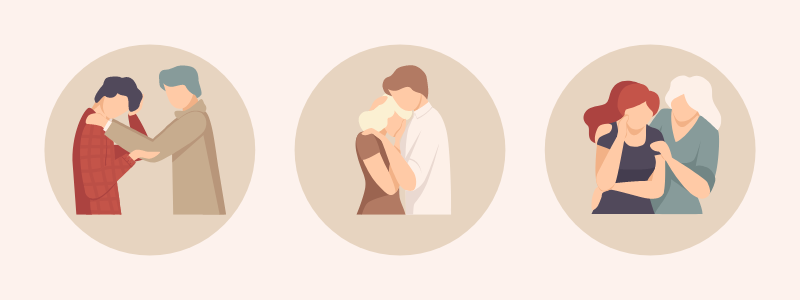Advice #1: My Diagnosis Leads to Rejection...
How to deal with rejection after a diagnosis, a good work-life balance, social anxiety and unfulfilling jobs
Dear mental health advocate,
Today I am sharing with you the first edition of The Present Psychologist Pointers. In these editions I will write about struggles some of my followers have agreed to share anonymously and provide some ideas and tips how to deal with them. I will discuss four cases in each issue. Please bear in mind I do not have the entire context and it is possible my advice would not work in your situation. I try to keep the advice general. These columns are intended as education and not as a solution. If you are suffering, please focus on finding a mental health professional near you. Do you want a problem you are currently facing discussed? Fill in the anonymous survey here.
In today’s issue, the following four cases will be covered:
Case 1: Being rejected after telling people my diagnosis.
Case 2: Struggling with balancing work/life.
Case 3: Dealing with anxiety in social situations.
Case 4: What to do when your job is unfulfilling.
Keep on reading to find out more!
Case 1: Rejection Because of A Diagnosis
‘I was diagnosed with a Borderline personality disorder. When I mention this to people or potential love interests, I sometimes get rejected right away. It feels like I am being labeled by them and they want to avoid me because of my BPD without even knowing me. This hurts and does not feel like I get a chance. How can I best deal with such rejection?’ - Person X, France
Being rejected because of a mental health diagnosis can hurt deeply. Know that it is perfectly normal to feel a mix of emotions like confusion, loneliness and fear. While we want to be accepted by others and connect with them, a lack of understanding can play a large part why they reject you. There is still stigma around certain mental health disorders like BPD. People might assume things and avoid getting closer, because they fear what they do not know. Often, the only knowledge they have results from popular culture or terms they have heard somewhere without actually grasping the meaning behind it.
The best advice I can give is that you always have to try to educate people in a friendly and open manner. For example, inform them what your diagnosis means and how it affects you. Creating awareness can really help. Explain how your diagnosis does not define who you are, that you are open to connecting with people and hope to not be judged because of it. Don’t give away your entire past or traumas, just let them know what it means to have BPD. People might be open to a conversation and can positively surprise you with their reaction. If they still are not, try to focus on yourself and the people that still show kindness. Unfortunately, not everyone will like us. See it as their loss, not yours. You are a worthy individual, capable and deserving of love.
Case 2: How to Balance Work-Life as an Adult
‘As an adult, I feel like it is nearly impossible to juggle all my responsibilities. A work-life balance seems far away. This leads to an unhealthy amount of stress and I feel overwhelmed completely. How can I manage?’ - Person X, USA
Keep reading with a 7-day free trial
Subscribe to The Present Psychologist Paper to keep reading this post and get 7 days of free access to the full post archives.



